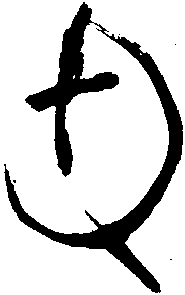COV&R-Bulletin No. 11 (Oct. 1996)
Anthropoetics: The Electronic Journal of Generative Anthropology
http://www.hu mnet.ucla.edu/humnet/anthropoetics/home.html
Anthropoetics announces the appearance of its special issue (II, 1) on the work of René Girard. Contents include:
Interview with René Girard by Markus Muller (UCLA) for Anthropoetics James Williams (Syracuse) - René Girard without the Cross?: Religion and the Mimetic Theory Thomas Bertonneau (Central Michigan) - Two Footnotes: On the Double Necessity of Girard and Gans Matthew Schneider (Chapman College) - Mimetic Polemicism: René Girard and Harold Bloom contra the "School of Resentment"
We are now accepting submissions for our next issue, to appear in Fall 1996. A complete statement of our editorial policy may be found at our WWW site. Texts or inquiries should be sent by email to: anthro@humnet.ucla.edu or by mail to:
Anthropoetics c/o Eric Gans
UCLA Department of French
Los Angeles CA 90095-1550
Galist: Persons interested in knowing more about generative anthropology are invited to subscribe to our on-line email list by sending the following message:
Address to: maiser@humnet.ucla.edu
Subject field: [unimportant]
Body of message: subscribe galist
Chronicles of Love and Resentment
http://www.hu mnet.ucla.edu/humnet/anthropoetics/views/home.html
Eric Gans' weekly WWW column applies originary thinking to subjects varying from epistemology to body piercing, from romantic love to the abortion controversy, from Abelard and Heloise to the films of Quentin Tarentino. Subscribers to the GAlist receive the column weekly by email. Statement of Purpose Generative anthropology (GA) is neither empirical social science nor speculative philosophy. It is a new mode of critical thinking that applies the criterion of parsimony to the study of cultural phenomena: all things human must be traced back to their source in the hypothetical scene of origin in which human beings as sign-using creatures first emerged.
The originary hypothesis of GA is that human language begins as an aborted gesture of appropriation
representing--and thereby renouncing as sacred--an object of potential mimetic rivalry. The strength of our mimetic intelligence makes us the only creatures for whom intraspecific violence is a greater threat to survival than the external forces of nature. Human language defers potential conflict by permitting each to possess the sign of the unpossessable object of desire--the deferral of violence through representation. GA transcends the impasse between the humanities, imprisoned in the "always already" of our cultural systems, and the empirical social sciences, which fail to grasp the originary basis of these systems. The originary hypothesis provides the basis for rethinking every aspect of the human, from language to art, from religion to political organization. Anthropoetics is dedicated to this rethinking, both for its intrinsic theoretical interest and as a framework for literary and cultural analysis. The editors of Anthropoetics hope to stimulate continuing interest in GA and to encourage productive dialogue between the humanities and the social sciences.



